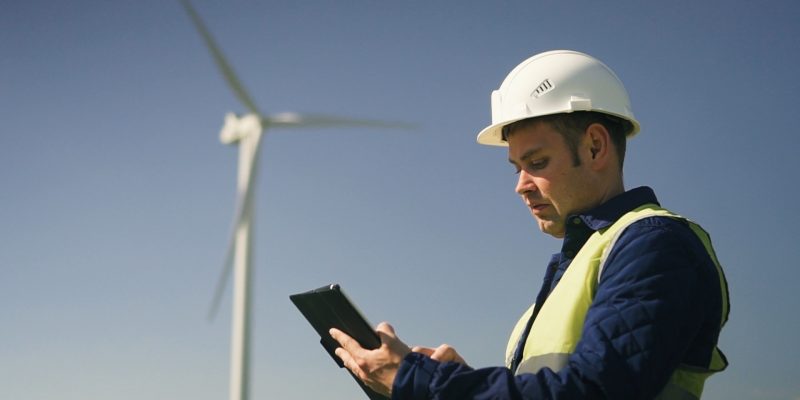Energy is the sector that provides power not only to ordinary Cleantech jobs but also to other industrial sectors. The energy industry now encompasses roles in numerous sub-industries.
If you’re interested in entering the energy industry, it’s important to understand what this field entails and what options might be available for Cleantech jobs.
In this article, we define the characteristics of the energy industry, explain how you can get into the industry, provide a list of some of the jobs you might consider, and answer some frequently asked questions relating to the topic.
What is the energy industry?
The energy industry refers to the totality of organizations that engage in activities or processes related to generating, supplying, and selling energy.
This includes entities that explore energy sources, refine fuel sources, store energy, distribute it and market it. There are various sources of energy associated with this industry, including
- Petroleum
- Natural gas
- Coal
- Nuclear power
- Wind power
- Solar power
- Hydropower
- Biofuel
How to get into the clean energy industry?
Choose a function area for Cleantech jobs:
A functional area refers to a segment of an organization dedicated to a particular activity. The human resources department of a company would be an example of a functional area for Cleantech jobs.
The first step to getting started in the energy industry is deciding which functional area is right for you. The energy industry comprises a large number of organizations that require diverse groups of people to carry out different sets of activities, including but not limited to the following:
- Skilled trade
- Construction
- Transportation
- Finance
- Account
- Law
- Management
- Information technology
- Sales
To determine which side of the energy field for Cleantech jobs you’d like to enter, try to perform a self-analysis that considers your interests, strengths, weaknesses, aspirations, and resources.
For example, if you’re competent in mathematics and have the means to pursue a college degree, you might consider engineering.
Alternatively, if you’re not interested in postsecondary education for Cleantech jobs, you could pursue a career path in a skilled trade relating to installations or repair.
Join a professional association
A professional association comprises individuals who belong to a particular industry or profession and is often open to those aspiring to enter the field.
Professional associations offer helpful services to their cleantech job members, including networking and job searching opportunities.
For example, the American Solar Energy Society is a nonprofit that promotes renewable energy, offers resources to the renewable energy community, and puts on programs such as webinars and an annual conference that attracts important industry professionals and advocates.
Consider becoming a Cleantech jobs member of an association to gain useful industry knowledge and boost your employee chance.
Look for entry-level opportunities
Many career paths in the energy industry require no experience and provide on-the-job training or apprenticeships.
Suppose you’ve chosen to pursue a profession in a functional area that allows for such opportunities. In that case, you can find entry-level opportunities by researching well-known companies in the relevant field.
Once you’ve identified who your potential Cleantech employers are, carefully search the careers pages of their official websites to find such roles.
You can work your way up in the organization from an entry-level position or leverage your experience to land a higher-level position with another Cleantech job employer.
5 Cleantech jobs in the energy industry
- Solar photovoltaic installer
- Wind turbine technician
- Line work
- Power plant operator
- Electrical engineer
Solar photovoltaic installer
Duties: A solar photovoltaic installer is a type of technician who specializes in solar photovoltaic systems, which convert sunlight into energy.
Wind turbine technician
Duties: A wind turbine technician is a professional who services wind turbines and large structures with blades designed to rotate in the wind, thereby generating energy.
Line Worker
Duties: A line worker known as a line installer and repairer is a trade professional responsible for building and maintaining the physical lines that connect power plants to energy consumers.
Power plant operator
Duties: A power plant operator is responsible for handling the systems generating and distributing energy in an energy-producing facility. The primary duties include operating and maintaining the equipment necessary for energy production.
Conclusion
The Renewable Energy Institute has been working to promote best practices in Renewable Energy and Energy Efficiency since 1975. As part of this mission, the Institute for Cleantech jobs is dedicated to using its wealth of experience to support Renewable Energy professionals in advancing their careers in the Cleantech jobs sector.






Comments